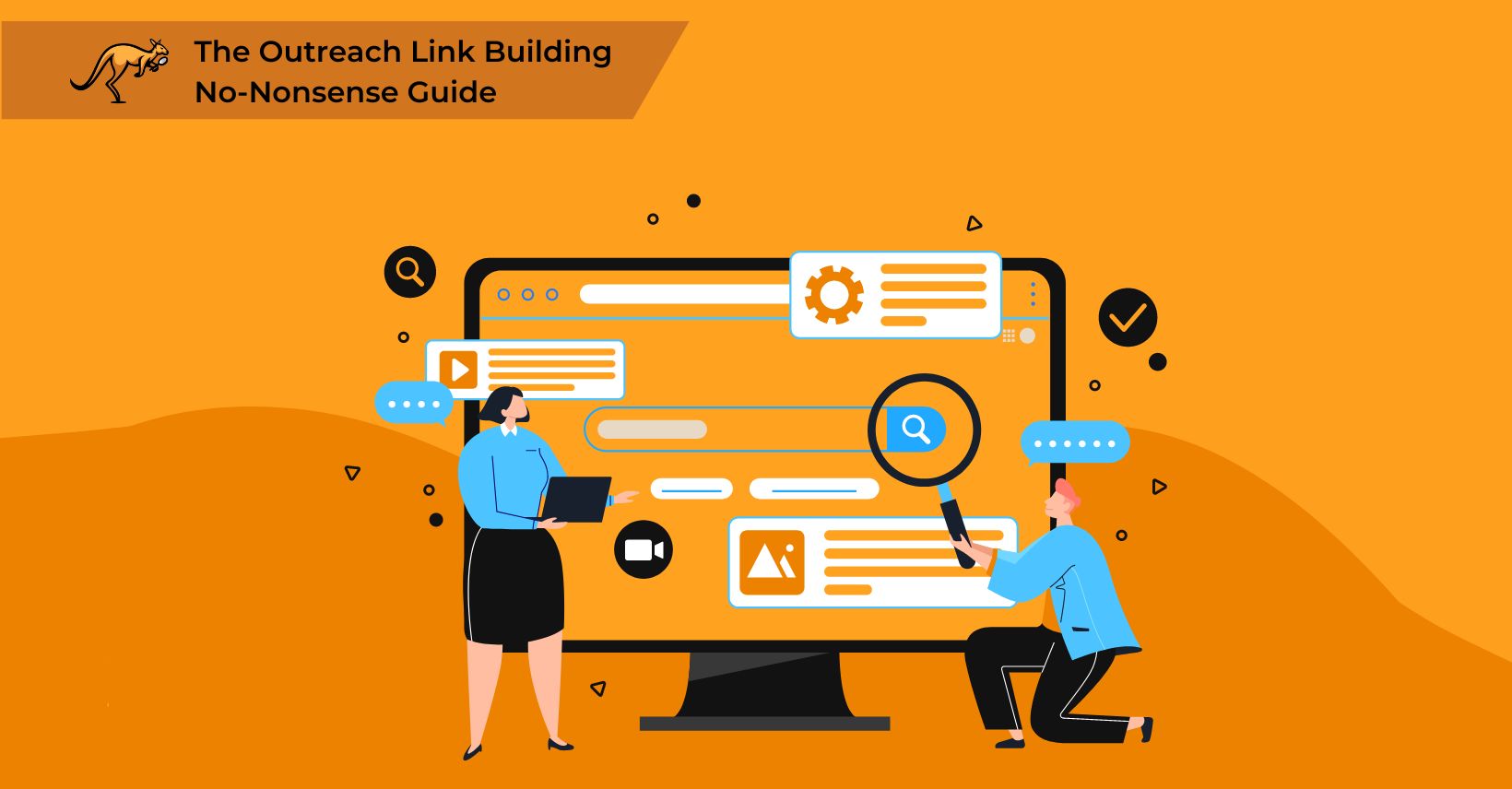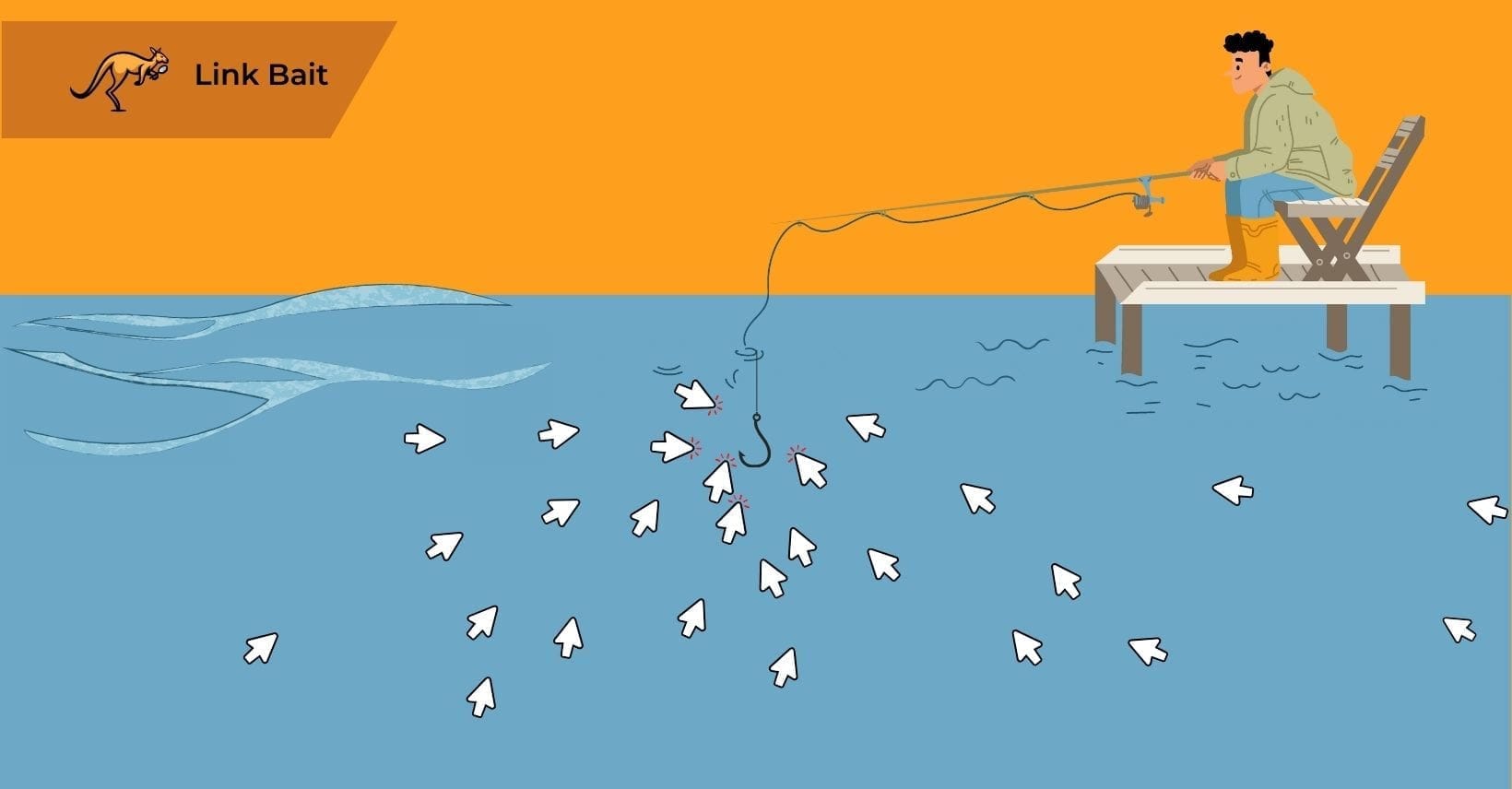As you may already know, we are a successful professional outreach team. And while we’ve helped grow numerous sites in multiple niches to achieve triple-digit increases in traffic and exposure during our time, we weren’t always the knowledgeable and effective link building team we are today.
So…
How did we master outreach?
One important thing to notice is that none of us is born with the skill; we just need to dedicate the time that others don’t to try and fail until we become good at it.
In essence, outreach link building involves contacting website owners to acquire backlinks that improve your site’s search engine rankings. Outreach link building forms a fundamental part of SEO strategy that increases domain authority and visibility. Anyone willing to try it and learn the right strategies will succeed. It’s just that there is a significant amount of nonsense flying around online, which makes outreach and link building sound way harder.
So, in the same spirit, we will keep this guide simple and streamlined. The most effective outreach link building strategies include personalized email outreach, targeted prospecting based on niche relevance, value-driven content offers, and relationship-based negotiations. Even if you’re completely new to SEO with zero experience or already have advanced SEO skills, you’ll be able to follow along with no issues.
OK, here’s what you’ll need to get started:
- An email or Gmail account: You can sign up here.
- Content to be placed (we recommend a minimum of 500 words for a guest post) with all your target anchors already placed. For this, you can write the post yourself or hire a writer.
- An Ahrefs subscription (Optional): This is not free. Still, you need to analyze metrics such as domain authority, organic traffic, referring domains (RD), relevance to your niche, and spam score when evaluating potential link building opportunities. A tool like Ahrefs comes in handy for gathering these critical metrics that determine link quality.
Prospecting and emailing

We first have to look at the keyword we’re trying to rank for, check the competition, possible anchor texts we can use, and how many links we’ll need to build.
Let’s say we’re building a single link for this page: https://searcharoo.com/link-building-for-ecommerce. And our anchor text is “best link building strategies for eCommerce”.
Our preferred way to get contacts when prospecting is to scrape Google by Googling keyword-based terms and checking what pages are there.
The Ahrefs Toolbar can help you check the metrics of every site when scraping, so you can decide which ones you want to outreach right off the bat.
The most important thing to remember when prospecting is to think outside the box for your keyword research. Keep in mind that you’re targeting the right ‘audience’ of sites that have the biggest potential to drive traffic and authority for your target site.
Seeing them as an audience is the key to thinking about these sites. For example, we’re outreaching for our site Searcharoo.com, so we should look for keywords around the specific article topic we’re using or our site’s niche. Meaning terms concerning “link building”, “seo”, or “ecommerce”, etc…
For this part of the process where we need to pick niche keywords, we use a web-based tool called AnswerThePublic.com.
Here you can type your root keyword, and it will give you other long-tailed topics you can search around that keyword. Here’s you can see how Answer The Public looks when you enter a root keyword:
We always target informational-based keywords for link building rather than your typical money keywords. We’re looking for blogs with high authority that make money from advertising or remarketing. We don’t want to outreach to sites that are commercially selling products.
We can use advanced search operators to find our target sites which work very well if we want precise results. However, this will mostly give us the same results that every other outreach service targets for guest posts. So, we prefer using the keyword scraping method to find sites that others can’t find as easily.
But if you’re struggling to get started, you can use the search operators below to find better targets:
- “Guest Post” + keyword
- “Write for Us” + keyword
- “Submit Content” + keyword
- Etc…
Using search operators is by far the easiest route for prospecting. Just be aware that if you’re looking for the best target websites, you need to search for niche relevant keywords.
After this, we build our list of sites. We’re only building one link for this guide, so we can choose about 20 contacts to make our initial outreach to. Before we continue, there are no precise numbers as to how many outreach emails will get you X links, as the numbers will always vary.
How well redacted your outreach email is, and your negotiation skills will significantly influence your conversion rate. It’s up to you to test your systems and see how many emails you’ll need to send to get X back.
Now we create a simple list where it shows the following:
Target URL – Email.
And once we’ve got enough outreach contacts, it’s time to send our emails.
The email account you use won’t make a massive difference. But using one other than your main account is recommended since you’ll probably be getting much spam as time goes on.
Before we make our initial outreach, we need an email template. Here’s one of our most effective if you need a reference:
“Subject: (Important) Advertisement question about [target website name]
Hi [contact first name or ‘there’],
I’m [your name and company].
I came across your website: [target website name] and saw that you accepted guest posts, and I was just checking in to see if you were still accepting them?
We could be interested in this service. The advantage for you would be adding topically relevant content to your site, written by me and completely free of charge! So, could you let me know the best price you can offer for a service of this nature?
Here’s some of the content that I’ve written in the past:
[3 previously well-written article URLs]
If so, I’d like to hear what your requirements are.
Kindest regards,
[your name]”
Follow up is important, too. A significant 60% of our responses come just from our follow up emails! You can do this manually if you’re just starting. Still, eventually, you’ll need to incorporate tools like Mailshake or Pitchbox to automate this process for you:
“Hi [contact first name or ‘there’],
I reached out to you a few days ago. Did you get a chance to see my previous email?
Hope to hear from you soon.
Kindest regards,
[your name]”
Forwarding your email to enhance the likelihood of a successful arrangement, as this approach may help avoid spam filters and improve your message’s visibility. After sending, patiently await replies. If no responses come, continue prospecting and reaching out to additional sites.
As you prepare for potential dialogues, consider the subtle intricacies of negotiation to ensure mutually beneficial link partnerships.
How to Negotiate our Link Deals?

Negotiation is one of the key factors that separate good and bad link builders, so here’s what you need to keep in mind:
- When replying, your negotiation strategy should be an extremely high turnover approach.
- Don’t spend hours negotiating deals with individual sites or pushing and pushing until you get your desired result.
- Sit and talk just with the opportunities that matter or have real potential.
- For the rest, just ignore them; you don’t need to be polite.
Now we’ll take a look at some of the most common responses we get and how we handle different types of replies to outreach emails, from rejections to negotiations to redirects:
“We’ll be accepting guest posts in the future, but we’re OK for now.”
Most of the time, this means the site is brushing you off. If it’s a really good link that you had an eye on, you might want to follow up, but generally, we wouldn’t bother.
“Our fee for a placement is X.”
This is ultimately down to your budget as to how much you can pay the site, but if you’re going for link exchanges or free placements, it’s worth ignoring these sites. It’s almost impossible for a site with fees for link building to back down on them and give you a free placement.
“You can upload your placement here.”
Not that there’s something wrong with uploading a guest post, but this very often means it’s a link farm style site, and we recommend you to keep away from these.
“You have to apply to become one of our writers.”
These are 50/50. Becoming a writer for good sites means hard work, and sometimes you’ll have to pass an application process before you can make a placement. However, it can also mean you get to work long term with a great site that not many get access to.
So, it depends on how much effort and time you want to put into an individual placement.
“You need to take this to so-and-so; I’ll cc them in.”
You encountered an office worker who may not be fully adept at managing your email. Depending on their experience level, they could forward your query to a more relevant department or their superior, who can address or disregard your message.
To increase your chances of a favorable outcome, it’s advisable to politely request contact with someone from the editorial, marketing, or sales team. The optimal response would typically originate from a person who shows genuine interest in featuring your article, whether this involves a financial transaction, a link exchange, or simply for exposure.
Strategically targeting the right contact can help you achieve your desired outcome more efficiently. Adopting this approach not only streamlines the process but also sets the stage for taking your media placements to the next level, enhancing their visibility and impact as you begin scaling your efforts.
Getting your placements live and scaling
Being successful at outreach is not hard or complicated. Still, it does require vast amounts of trial and error and a thick skin to persevere through negative and draining negotiations. Scaling outreach link building requires automating email sequences, building a database of quality prospects, standardizing your negotiation process, and tracking performance metrics to refine your approach.
Suppose you can work through that, keep your eyes on the goal and identify the areas where you excel at outreach and the ones you need to improve. In that case, you can certainly become a successful outreach expert.
And if you’re looking to learn more about scaling outreach link building. Then we recommend that you take a free strategy call with us. We’ll analyze your site and niche. Together with you, we’ll work on effectively scaling your outreach link building strategy in more detail.
Why Choose Searcharoo?
Professional outreach link building services like Searcharoo deliver benefits including time savings, access to established relationships with publishers, higher conversion rates, and consistent quality control. Searcharoo is a highly effective partner for mastering outreach and link building due to its use of advanced technology and a team of seasoned SEO specialists.
Our potential incorporation of sophisticated algorithms allows for precise site relevance and authority analysis, aiding in identifying quality link opportunities. This technological edge, combined with the profound industry knowledge of experts, can help businesses guide the complicatedness of SEO and enhance their digital marketing strategies.
Additionally, we offer a range of comprehensive tools customized to various SEO needs, such as keyword research, competitor analysis, and backlink audits, making it a one-stop shop for businesses aiming to improve their SEO efforts.
Customizing outreach strategies to align with specific business goals, along with ongoing training and strong customer support, ensures that businesses can implement effective link building campaigns and adapt to the constantly changing landscape of SEO. Our commitment to ethical SEO practices further ensures long-term success and reliability in improving search engine rankings.





